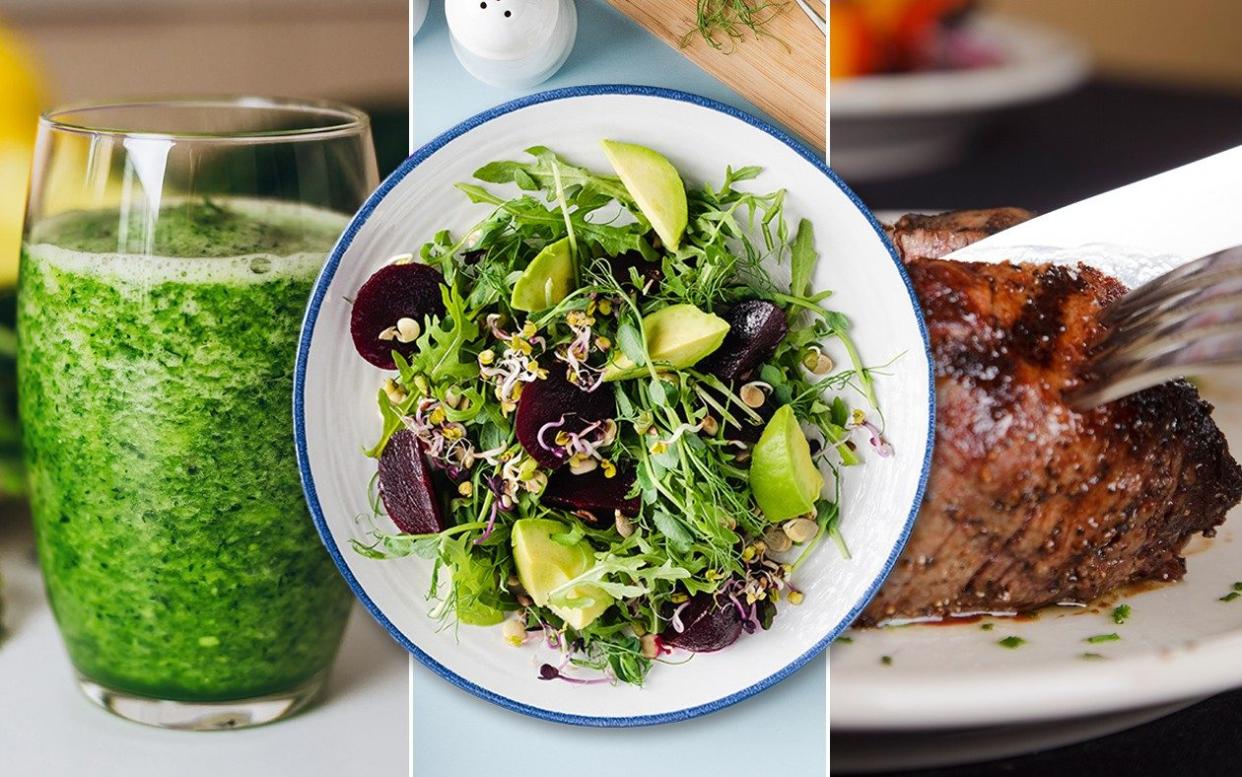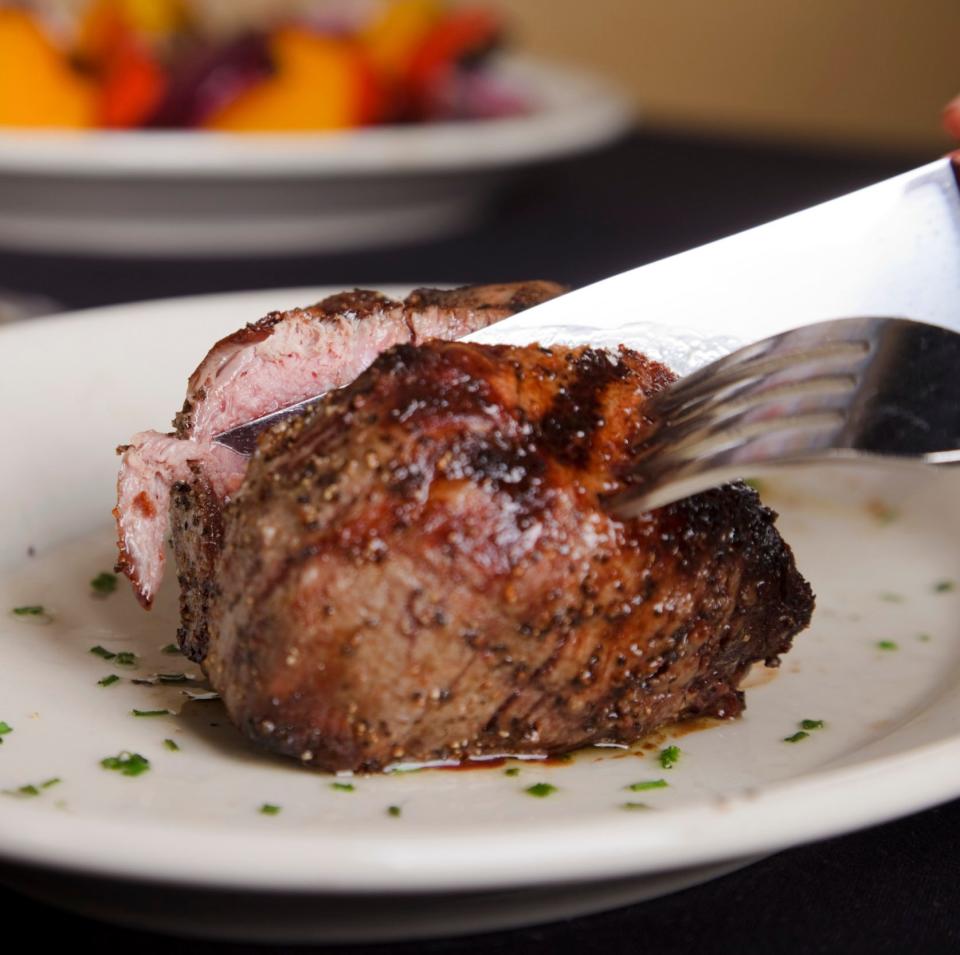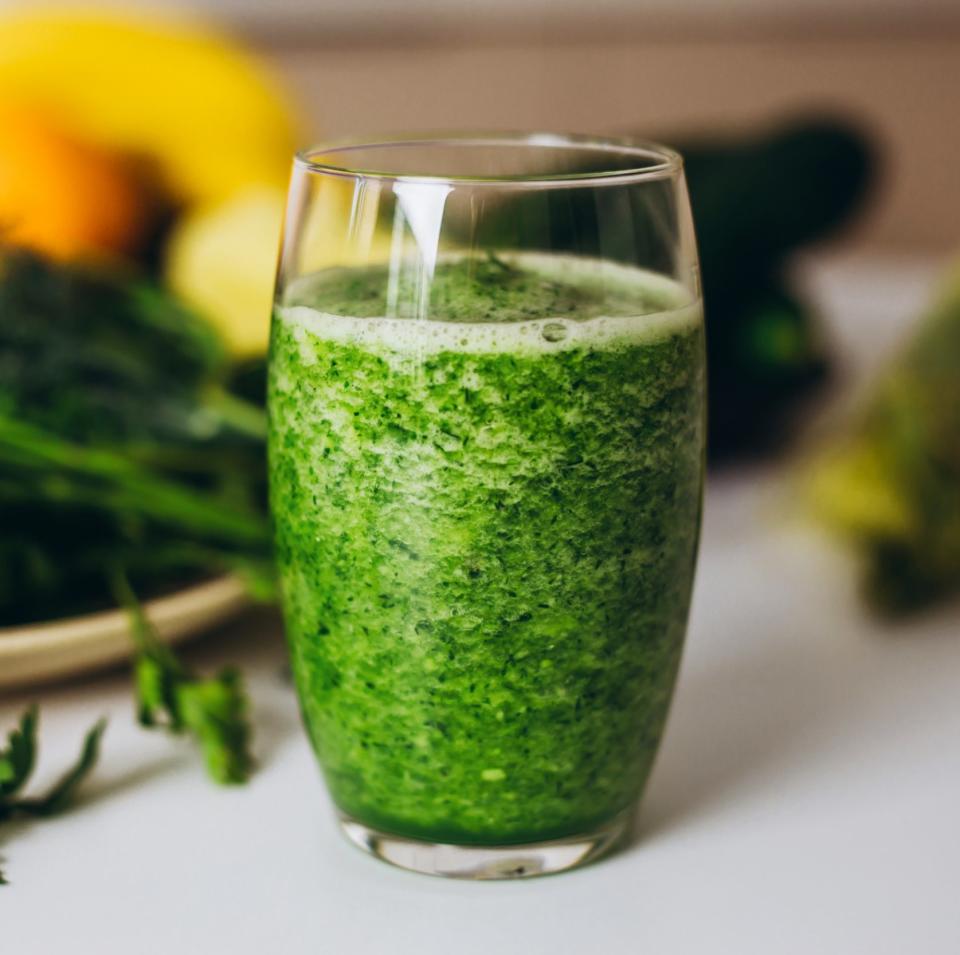Seven fad diets that won’t work

Weight loss miracle cures are everywhere. Every day a new study, product or trend promises a magic bullet that will banish fat and give you a svelte figure with next to no effort.
Fad diets date back to the 19th century, but the advent of Instagram and TikTok has led to a mass proliferation of get-slim-quick techniques from detoxifying teas to volume eating diets.
“Self-esteem is at an all-time low, and not trusting yourself is a key feature of people who pursue quick-fix solutions,” says Dr Jo Perkins, a chartered psychologist. “You’ve tried it on your own, haven’t succeeded, so you lean on a magic solution.”
This is human nature, says Dr Perkins. “We’re hard-wired to want to expend the least energy on the best result – a hungry monkey reaches for the nearest banana rather than the one at the top of the tree – it’s the same with weight loss,” she says.
The trouble is that “we live in an instant gratification culture where it’s easier to order a weight loss product online than it is to stop and think about it and why we even want it,” adds Dr Perkins. “There’s a perceived credibility that comes with being the first to discover something. It’s a double-whammy inducing us towards fads, alongside the weight loss itself.”
However, in the long term, these techniques are tricky to stick to. Here are a few popular ‘weight-loss miracles’ and, crucially, why they won’t work in the long term…
Detox teas
Promoted as ‘flat tummy teas’, these products are presented as a natural way to reduce water retention, cleanse the digestive system, and ultimately lose weight. A common denominator in these products is often senna, a natural laxative.

One can get a flatter stomach on a detox tea diet because the laxative effect causes them to excrete food before it is fully digested. They often also contain diuretics which cause drinkers to pass fluid more regularly, resulting in a temporarily flatter stomach. However, consuming laxatives and diuretics can cause stomach cramps and diarrhoea. As soon as a person stops consuming them, any perceived weight loss will be reversed.
Beverly Hills Diet
Created by the author Judy Mazel in 1981, this is an extreme diet that claims to promote weight loss through specific food combining. The Beverly Hills diet is based on the idea that the order and combinations in which foods are eaten causes weight gain. Mazel claimed that eating foods in the wrong order could stop some foods from being digested, causing fat build-up.
The diet divides foods into four groups: carbohydrates, proteins, fruits, and fats. Fruit, even different types of fruit, must always be eaten alone. If a different type of food is eaten, such as a protein, the dieter must wait until the next day to eat fruit again.
Protein and carbohydrates cannot be eaten together. You won’t be surprised to hear experts are very sceptical about whether food combining actually works. You will probably lose weight initially because of the low calorie intake but it’s very complicated to follow and following such a restrictive diet for an extended period of time could result in nutritional deficiencies. Best to confine this one to the history books.
Vagus nerve stimulation
Currently being trialled by scientists at Moscow State University, this technique involves clipping electrodes to a part of the ear which contains a branch of the vagus nerve. The nerve stimulates appetite so the thinking goes that an electrical current passed through it could tell the brain that the stomach is full, curbing a person’s appetite.
Vagus nerve stimulation has already been heralded as a miracle cure in epilepsy and depression, and animal trials have suggested it may work for weight loss. Users in the Russian trial will wear the clips on both ears, connected to a battery-powered generator which will provide 10 minutes of stimulation per day.
However, it isn’t clear whether it will work, let alone its long-term efficacy. “Ultimately, the only way to make weight loss work is if you can shift your habits to move your weight anchor down,” says Dr Andrew Jenkinson, a bariatric surgeon and author of How To Eat (And Still Lose Weight).
Carnivore diet
This involves cutting out all food except meat. The idea is that protein has a ‘high thermic effect’ meaning the body has to work hard to digest it, burning more calories in the process. Additionally, since protein is used for building muscle, the body quickly increases in muscle size, raising its basal metabolic rate – the calories are burned simply by staying alive.

While weight-loss will happen on this diet, that’s due to the calorie restriction of not eating normally. The other supposed benefits are questionable according to experts. “You can’t magically take all of your protein in one meal and turn that excess into muscle,” says the award-winning dietitian Priya Tew. “It will convert it into glucose and your body will either use it or store it.”
Cabbage soup diet
A popular strategy which sees people eating nothing but cabbage soup for a week, stripping out any other aspects of their diet.

It will work temporarily, mostly due to cutting out calories. However, like all calorie-restricting diets, it’s “prone to short-term success, long-term failure – as soon as you come off it, your brain will want to get back to its weight set point,” says Dr Jenkinson.
Volume eating
Based on the idea that food loses nutrients when cooked, this diet sees people eating only raw, plant-based foods that are high in water and fibre so you feel full. It is popular on TikTok as the rebranded concept of “volume eating” where dieters eat big helpings of low-calorie foods like spinach to stay full, avoiding carbohydrates.

The diet can help followers avoid the worst excesses of modern junk food. “The Western diet is high in ultra-processed foods made with refined sugar and carbohydrates which causes our insulin to become high,” Dr Jenkinson explains. “This blocks your natural weight regulation hormone, leptin. Your brain then thinks you’re running on empty and tells you to keep eating.” In short, by eating raw food and avoiding ultra-processed foods, you will stop overeating.
However, it pays to be careful. A 1999 study by German scientists looking into over 500 people on the diet over three years found that “since many raw food dieters were underweight and exhibited amenorrhea [loss of periods], a very strict raw food diet cannot be recommended on a long-term basis”.
Personalised diets
This involves getting analysis of blood or stool samples to create a hyper-personalised diet based on gut bacteria or DNA. The thinking goes that a person can optimise their intake to foods they are best able to digest.
“People love the idea that something is just for them, that you’re getting something no one else has understood,” says Dr Jenkinson. “But it’s based on pseudoscience. There’s no evidence that you can tailor a diet to your gut microbiome or that it’ll have any effect. Eventually all these diets end with advising you to eat normally, but avoid ultra-processed foods, which works but isn’t personal.”
Juice cleanse
Popularised by catwalk models and Kardashians alike, juice diets were all the rage several years ago. The diet is essentially a simple calorie-restriction – by cutting out normal solid foods, you limit the amount you’re eating, putting you into a calorie deficit.

Work has been put into making sure low-calorie meal replacement shakes have the right nutrients and vitamins in them, so a reputable juice cleanse diet is usually nutritionally complete. However, according to Emer Delaney, a spokeswoman for the British Dietetic Association, juice cleanses are inherently unsustainable: “People might be able to follow them for a couple of weeks but it’s not addressing your behaviour around food. They’re not sustainable. People can’t just go on drinking shakes for the rest of their lives.”
In short, once you come off the diet, the weight will go back on.
The real secret to lasting weight-loss
Lasting weight-loss happens by altering the brain’s weight anchor.
“The brain is in control of your weight, not you,” Dr Jenkinson explains. “It’s like saying you can control your breathing by holding your breath; the brain takes back over. It will drag you to the weight it wants you to be. The only way to lose weight sustainably is to understand why your weight anchor is set at such a level.”
Reducing the brain’s weight anchor is a gradual process, about adjusting habits and lifestyle in the long-term. “You can reduce it by changing not just the type of food you’re eating – cutting out those refined carbohydrates and sugars – but also by reducing your stress, and getting better sleep,” says Dr Jenkinson. “Forming healthy habits requires repetition. The more a habit is performed the more the neurological pathway will become ingrained into your brain. That’s when the weight anchor will move.”
Recommended
I lost eight stone after I saw myself on TV

 Yahoo News
Yahoo News 
